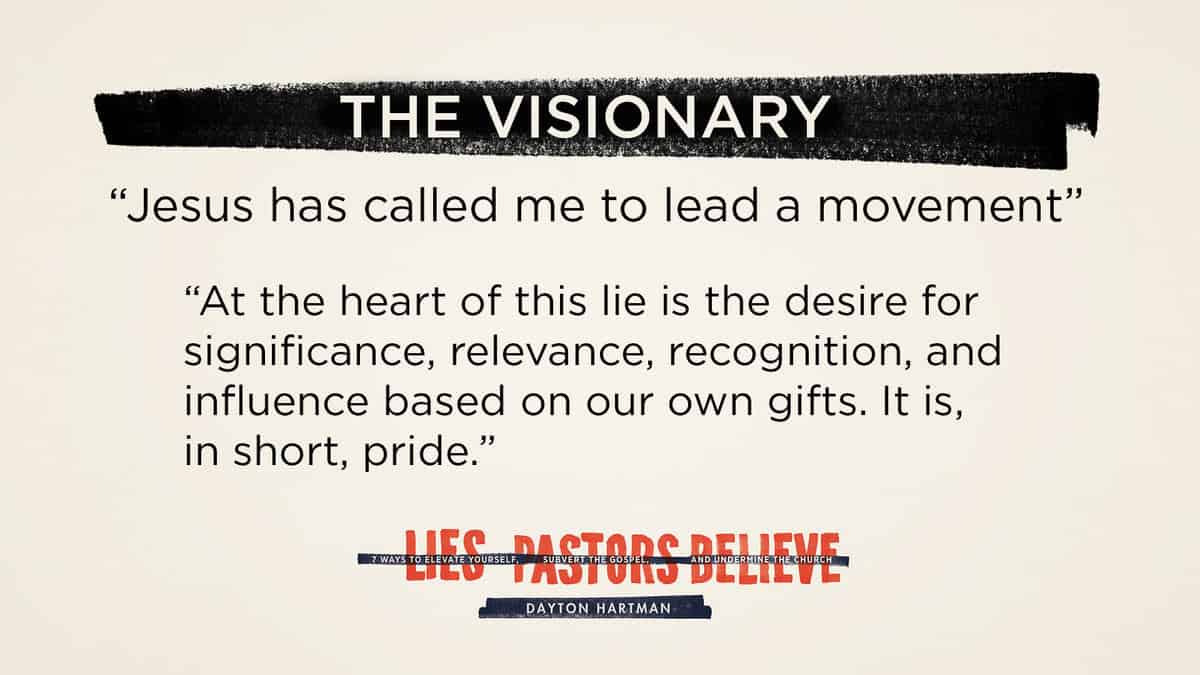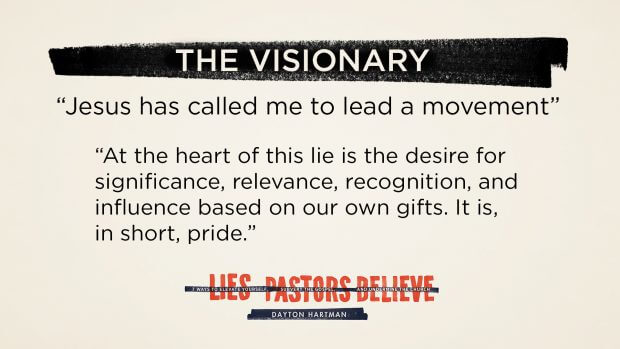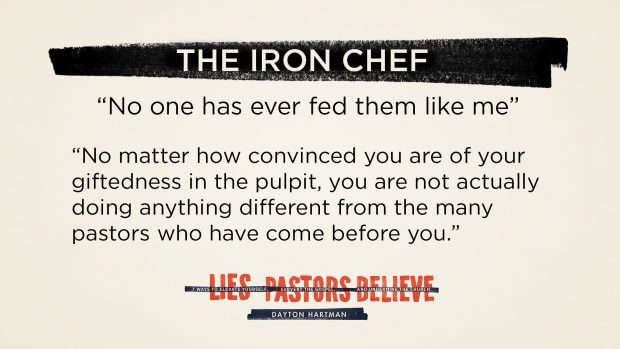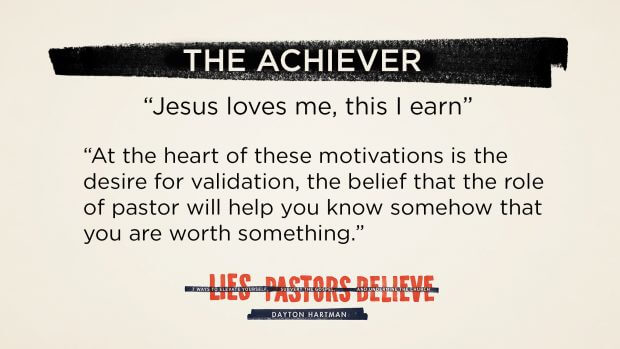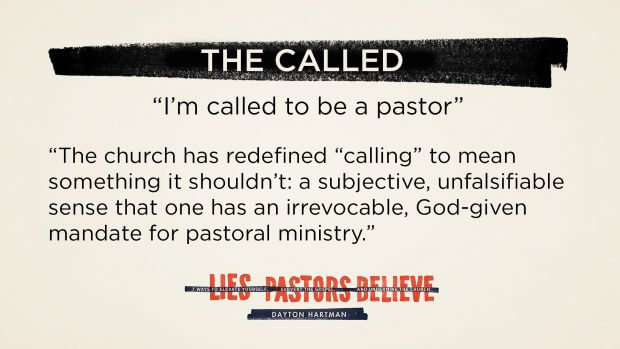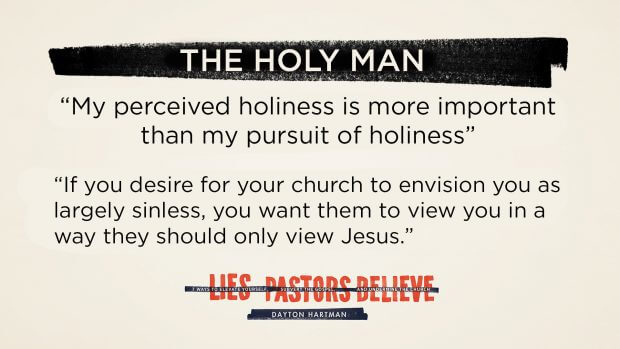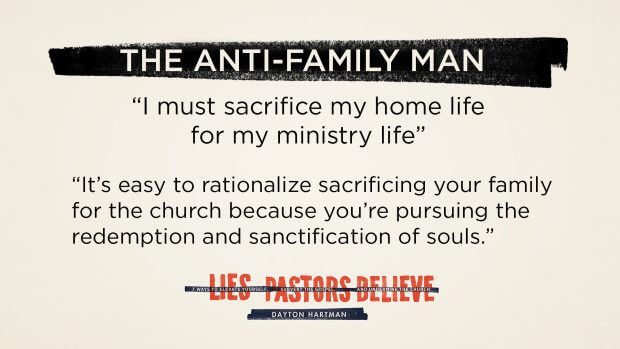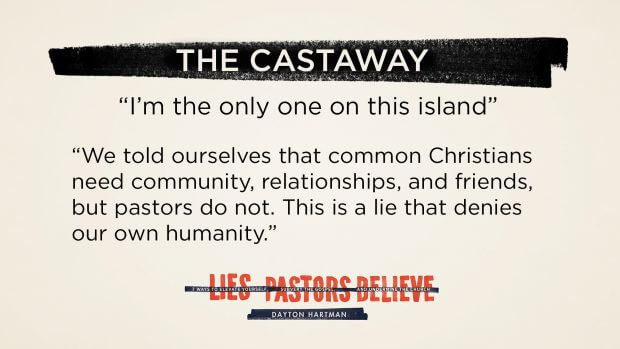We are all tempted to believe lies about our identities that shape our daily lives. As Dayton Hartman puts it, “Our hearts, apart from God’s regenerating grace, are literally lie-producing and lie-believing machines.” But Hartman is convinced there are unique lies that pastors often believe, specifically related to their identity as a pastor.
In his new book, Lies Pastors Believe, he tackles these self-deceptions head on, using his years of experience as a pastor and as a seminary professor to reveal how even small lies can lead to major problems. With a winsome and engaging style, Hartman shows current and future pastors why these lies are so tempting, the damage they can do, and how they can be resisted by believing and applying the truth of the gospel.
In these brief excerpts, Hartman exposes seven different lies pastors believe and gives a glimpse of how the grace of God can reverse them.
The Visionary
When we begin to believe that a church is our church, we’ve taken the place of Christ. When we allow the congregation to believe it’s because of our clever and engaging sermons that sinners are being redeemed, rather than through Christ’s work in the hearts of men and women, we are taking people’s hopes and placing them on our shoulders. We cannot be the hope for our congregations; only Jesus can be their hope. Our job is not to cast our vision; our job is to announce Jesus’s promise to save sinners and change nations. The hope we give people is not that we will lead them into an exciting future of gospel transformation, but that Jesus has already purchased the guarantee of a world transformed by the gospel.
The Iron Chef
Once you realize that your ability to communicate Scripture isn’t something to be prideful over—and that you’re not as good a preacher as you assume—you’re faced with the following tension: “How do I continue to become a better preacher while at the same time growing in my sense of humility in the pulpit?” I don’t believe there is a one-size-fits-all answer, but two things I recommend are listening intently and reading widely.
The Achiever
Whatever you are attempting to achieve for your own satisfaction or to earn the approval of others, pastoral ministry will not supply it. Whatever you may be attempting to atone for from your past, Jesus already paid for it. He doesn’t need your pittance. At its core, all attempts to achieve in order to earn approval are grounded in anti-gospel assumptions. In Christ, you already have the only approval that matters.
The Called
When Paul refers to men aspiring to be elders, he is talking about their desire to serve the church in such a capacity. In 1 Timothy 3:1–7, Paul calls on Timothy (and the church) to examine and test the one aspiring, and he provides a similar test in Titus 1:5–9. Virtually every qualification that Paul supplies for the examination of a man aspiring to the pastorate has to do with character. Paul calls on Timothy to observe the man’s moral restraint, his faithfulness to his wife, his conduct (both public and private), his treatment of his children, his handling of personal finances, and how he interacts with those around him. Nowhere does Paul mention a man’s subjective calling. Nowhere! Additionally, he mentions gifting only once: “He must be able to teach.” But note that this does not say a pastor must be a gifted and winsome communicator. Rather, Paul’s concern is that he accurately communicates the content of Scripture.
The Holy Man
When we allow the holy man myth to persist, we begin training our hearts to value perceived holiness more than the actual pursuit of holiness. As I prepared for ministry, I was told to make sure I exhibited the holiness of Christ before the watching eyes of a congregation. As a result, at different moments early in my ministry life, I found myself working hard to uphold my holy public image while giving no regard to the killing of sin in my private life. This was not only dishonest; it bordered on wickedness. When I became convicted over my embrace of this myth, I purposed to never again let myself fall into such a deception.
The Anti-Family Man
Choosing the bride of Christ over your own bride might sound very high-minded, but the truth is that if you are married, your highest calling is not to be a pastor. Your highest calling is to be a pastor-husband and pastor-dad. If you are favoring the church over your family, the collateral damage from this dereliction will result in abandoning your shepherding duties to the most important flock you will ever shepherd. This flock will never number in the hundreds and they will never pay your salary, but they are your primary responsibility.
The Castaway
As pastors we ought to constantly call our church family to meaningful engagement in the kind of community created by the gospel. In the early chapters of Acts, we find the believers living life together. How can we call the church to eat, work, and play together if we are not doing the same? Throughout Acts you never see the apostles and early church leaders separating themselves from the everyday lives of the believers. Rather, they lived in constant relationship with one another. For instance, Paul lived with and worked alongside Priscilla and Aquila (Acts 18).
* * *
Unmask the lies that can infiltrate your ministry—pick up Lies Pastors Believe today.

